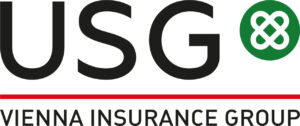
Madrid in the first half of 2025 confirmed its status as one of the key business centers of Southern Europe, remaining an attractive market for investors and tenants. Despite high inflation in the eurozone and ongoing geopolitical risks, the city’s office real estate market shows moderate growth and maintains a high level of activity in the premium segment.
Prices and rental dynamics
The average rental rate for Class A offices in Madrid’s central business district (CBD) in June 2025 was €36-39 per sqm per month, 3-4% higher than in the same period last year. In areas outside the CBD, including the Atocha and Chamartin districts, rates are holding between €22-28 per sqm.
The rental growth is mainly due to the shortage of quality modern space and increased demand from international companies in the IT, consulting and finance sectors.
Sales market
The average purchase price of office properties in Madrid in the first half of 2025 was €4,200-4,800 per sqm in central areas. In suburban areas (Alcobendas, Las Rosas, San Sebastian de los Reyes), prices range from €2,200 to €2,800 per square meter.
Deals with investment funds and REITs remain a key driver: in the first half of the year, several large office building renovation projects entered the market, and the volume of investment in the sector is estimated at €1.6-1.8 billion, 12% more than in the same period in 2024.
Expert opinions
According to CBRE Spain analysts, companies are increasingly abandoning old premises in favor of offices with energy efficiency certification (BREEAM, LEED). The share of such areas in the structure of transactions reached 45%, indicating a growing interest in sustainable development.
Jones Lang LaSalle (JLL) notes that demand for co-working and flexible office solutions in Madrid has increased by 15% year-on-year. Startups and branches of international corporations that are expanding their presence in Spain are particularly active using this format.
Forecast
Office rental rates in Madrid are expected to continue their moderate growth of 2-3% in the second half of 2025, especially in the premium segment. Purchase prices, according to Knight Frank experts, will fluctuate within the current values, but investor interest will continue due to stable demand and limited supply of new space.
In the medium term, the Madrid market will remain a benchmark for investors in Southern Europe: the combination of high quality of life, developed infrastructure and a growing number of international companies makes it one of the most stable office markets in the region.
http://relocation.com.ua/office-real-estate-market-in-madrid-results-first-half-2025/

At a diplomatic reception in Kyiv marking the 80th anniversary of Indonesia’s independence, the Ambassador of the Republic of Indonesia to Ukraine, Arif Muhammad Basalama, announced the deepening of bilateral relations and reaffirmed Indonesia’s commitment to the principles of international law, sovereignty, and territorial integrity of Ukraine. He expressed hope for the speedy establishment of peace in Ukraine.
According to the diplomat, 2025 will mark the 33rd anniversary of the establishment of diplomatic relations between the two countries. In the political sphere, key milestones were the visit of President Joko Widodo to Kyiv in 2022 and the meeting between President Volodymyr Zelenskyy and then-President-elect of Indonesia Prabowo Subianto in 2023. In February 2025, Indonesia supported the UN General Assembly resolution on a comprehensive, just, and lasting peace for Ukraine.

The economy is showing upward momentum: in 2024, bilateral trade reached $785.1 million (+43.3% y/y), and over the past five years, the trade surplus has grown by 11.23%. The parties are expanding cooperation in investment and joint production: in 2024, 426 projects of Ukrainian FDI in Indonesia worth $32.5 million were registered. The main commodity flows include palm oil, margarine, coffee, and Ukrainian grain as an important component of global food security.
Cooperation is also developing in the humanitarian and educational spheres. In 2025, it is planned to open an Indonesian Studies Center at the Nezhin State University named after N. V. Gogol and sign a number of documents between universities in Indonesia and Ukraine (including the Kyiv-Mohyla Academy, the National Academy of Culture and Arts Management, Podolsk State University), as well as exchanges in the media and science.
The ambassador recalled the internal priorities of the new administration in Jakarta—the launch of the Free Nutritious Meals program (free nutritious meals for children) and the creation of the Danantara Sovereign Wealth Fund to attract long-term investment in infrastructure, renewable energy, technology, agriculture, and high value-added industries. These initiatives, he said, reflect the commitment to sustainable and inclusive development that Indonesia brings to its international partnerships.
Diplomatic relations between Ukraine and Indonesia were established on June 11, 1992. The Embassy of the Republic of Indonesia in Kyiv has been operating since January 1994.

In Kyiv, barriers have been removed and free access has been granted to the coastal area of the elite River Stone complex at 14 Dniprovska Embankment (Darnitsky district). According to the Kyiv City Prosecutor’s Office, the Supreme Court has settled the dispute and ruled that restricting access to the Dnieper was illegal; the area of over 2,300 square meters has been returned to public use.
According to the agency, the developer had previously fenced off the coastline with barriers and gates, allowing access only to residents of the complex. Following the court ruling, the structures were dismantled and the passageway was opened to all Kyiv residents and visitors to the city.
The city authorities and the prosecutor’s office emphasize that the coastal zone is public space, and any attempts to block access to the water without legal grounds will be challenged in court.

The growing number of development partners and system integrators around cloud providers allows for faster launch of complex and large-scale projects in the Ukrainian market. This conclusion is given in his column for Interfax-Ukraine by Volodymyr Bjelov, Country Director of GigaCloud.
According to him, it is the “partner model” that helps to close the lack of expertise and speeds up the path from pilot project to commercial operation.
GigaCloud is a Ukrainian cloud provider (part of GigaGroup), founded in 2016. The company provides IaaS/PaaS services, virtual data centers, redundancy and continuity solutions (DR/BCP) and GPU clouds. The infrastructure is located in data centers in Ukraine and the EU (Kiev, Lviv, Warsaw) with TIER III/IV compliance; the provider has VMware Cloud Service Provider (Premier) status and is registered in CSA STAR Registry, portfolio – over 1.5 thousand customers.

In January-June 2025, the insurance company Ukrainian Insurance Group (UIG, Kyiv) collected UAH 1.932 billion in gross premiums, which is 37.14% more than in the same period last year, with net premiums amounting to UAH 1.738 billion (+51.54%).
This was reported on the website of the rating agency Standard-Rating, which confirmed the insurance company’s financial stability/credit rating at “uaAA+” based on the results of the reporting period.
At the same time, income from individuals during this period increased by 64.20% to UAH 1.188 billion, while income from reinsurers decreased by 25.78% to UAH 3.158 million. At the end of the first half of 2025, individuals accounted for 61.51% of the company’s gross premiums, while reinsurers accounted for 0.16%.
Insurance payments sent to reinsurers in the first half of 2025 decreased by 25.99% to UAH 193.735 million compared to the same period last year. Thus, the share of reinsurance companies in insurance premiums decreased by 8.55 percentage points (pp) to 10.03%.
The volume of insurance payments and reimbursements made by the USG in the first half of 2025 amounted to UAH 900.708 million, which is 50.41% higher than in January-June 2024. Thus, the level of payments increased by 4.12 p.p. to 46.62%.
The company’s operating profit for the reporting period fell to UAH 19.601 million (-46.99%), while net profit decreased to UAH 85.324 million (-9.5%).
As of July 1, 2025, the insurance company’s assets increased by 16.44% to UAH 3.480 billion, and its equity capital by 13.62% to UAH 707.466 million. Liabilities showed an increase of 17.18% and rose to UAH 2.773 billion, while cash and cash equivalents grew by 82.80% to UAH 423.46 million.
RA notes that at the beginning of the third quarter of 2025, the company had a satisfactory level of capitalization (25.52%), and cash covered 15.27% of its liabilities. The insurer formed a portfolio of financial investments worth UAH 1.891 billion, consisting of government bonds and government bonds with a fixed coupon (81.37% of the portfolio) and deposits in banks with high credit ratings (18.63%). As of July 1, 2025, liquid assets covered 83.47% of the insurer’s liabilities.
As reported, the controlling shareholder of IC USG is the Vienna Insurance Group, an international insurance group headquartered in Austria, which is represented by 50 companies in 30 countries and is the leader in the insurance market of Central and Eastern Europe.

Imports of tin and tin products rose by 52.2% to $2.338 million (in July – $410,000), while exports of tin and tin products in the first seven months of 2025 amounted to $101,000 (July – $16,000) compared to $331,000 in the first seven months of 2024.
Tin is mainly used as a safe, non-toxic, corrosion-resistant coating in its pure form or in alloys with other metals. The main industrial applications of tin are in white tin (tin-plated iron) for the manufacture of food containers, in solders for electronics, in domestic piping, in bearing alloys, and in coatings made of tin and its alloys. The most important alloy of tin is bronze (with copper).